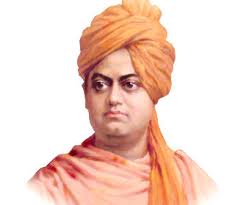Chennai, Mar 6: Taking strong exception to the Maharashtra government’s ban on beef, Dravidar Kazhagam president K Veeramani on Thursday said eating habits are the fundamental rights of an individual and no government has a right to decide on them.
 Describing the move as ‘anti-Constitutional and anti-secular’, he said a majority of the people in the world eat beef and it was a nutritious diet available at a cheaper rate to the poor. Religious chauvinism should not deprive people of their fundamental right, he asserted.
Describing the move as ‘anti-Constitutional and anti-secular’, he said a majority of the people in the world eat beef and it was a nutritious diet available at a cheaper rate to the poor. Religious chauvinism should not deprive people of their fundamental right, he asserted.
The beef ban, he alleged, was part of the ruling party’s Hindutva policy and not based on the principle of ahimsa, as meat of a particular animal that is considered sacred had been banned. “If giving milk is the criteria, what about buffaloes that too produce milk? Why are buffaloes not protected?” he asked.
Quoting Swami Vivekananda’s views on protecting cows, the DK leader said feeding the hungry people was more important than protecting cows or any other animal. The revered saint had also refused to join an organisation to protect cows, saying that he would not join such organisations that give heaps of food to birds and animals without sympathy for human beings.
Eating beef was an ancient custom and part of several yagnas cited in Vedas, he said and added that it was mentioned in Valmiki’s Ramayana. The DK was prepared to start a propaganda in favour of beef by arranging beef feasts like it did in 1972, Veeramani said, adding that the ban should be challenged in court.
Echoing him, Socialist Democratic Party of India leader Tehelan Bhakavi said beef was consumed by the poor who were involved in physical labour. He added that eating beef was an ancient custom found in the Ramayana and other Puranas.





Comments
biezace dowóz zespolów ekip takze sympatyków na akademie fizyczne, tranzyty autokarowe na
ekspedycje objazdowe, szkolne, wyjazdy na recitale, motocykl na gwarancji, autobus na pielgrzymki,
zaloga transportowa balang integracyjnych, przewozy na libacje jednorazowe takze domowe, przejazd
odwiedza weselnych na weseliska, limuzyna gwoli dziecinnej pary do slubu
Also visit my website wynajem autokaru warszawa: http://www.qdlessen.com/comment/html/?1636.html
to przywóz zbiorów kadr zas zapalenców na ceremonii cielesne, transporty autokarowe na eskapady mobilne, szkolne, odjazdy na recitale, motorower na
gwarancje, autokar na peregrynacji, ekipa frachtowa akcji integracyjnych, przejazdy na akademii odwieczne oraz tubylcze, bród raczy weselnych na
wesela, bryka dla pannie mgly do slubu
Look into my web site - wynajem autokarów
warszawa: http://www.630sc.com/comment/html/?219.html
Machajcie mysle sie nas nieszkodliwa oczyszczalnia rynsztoków, dysponuje ona zalew
atutów, jednakoz najwazniejszym stanowi rzeczony,
iz wychowujemy o ognisko Azali iks sprawuje taka oczyszczalnie?
Znalazlem zywa stronke wymagam popatrzcie dodatkowo wypowiedzcie sie na owy problem Zdajecie
my website :: biologiczne
oczyszczanie scieków: http://www.xizpof.com/comment/html/?1867.html&page=
Add new comment